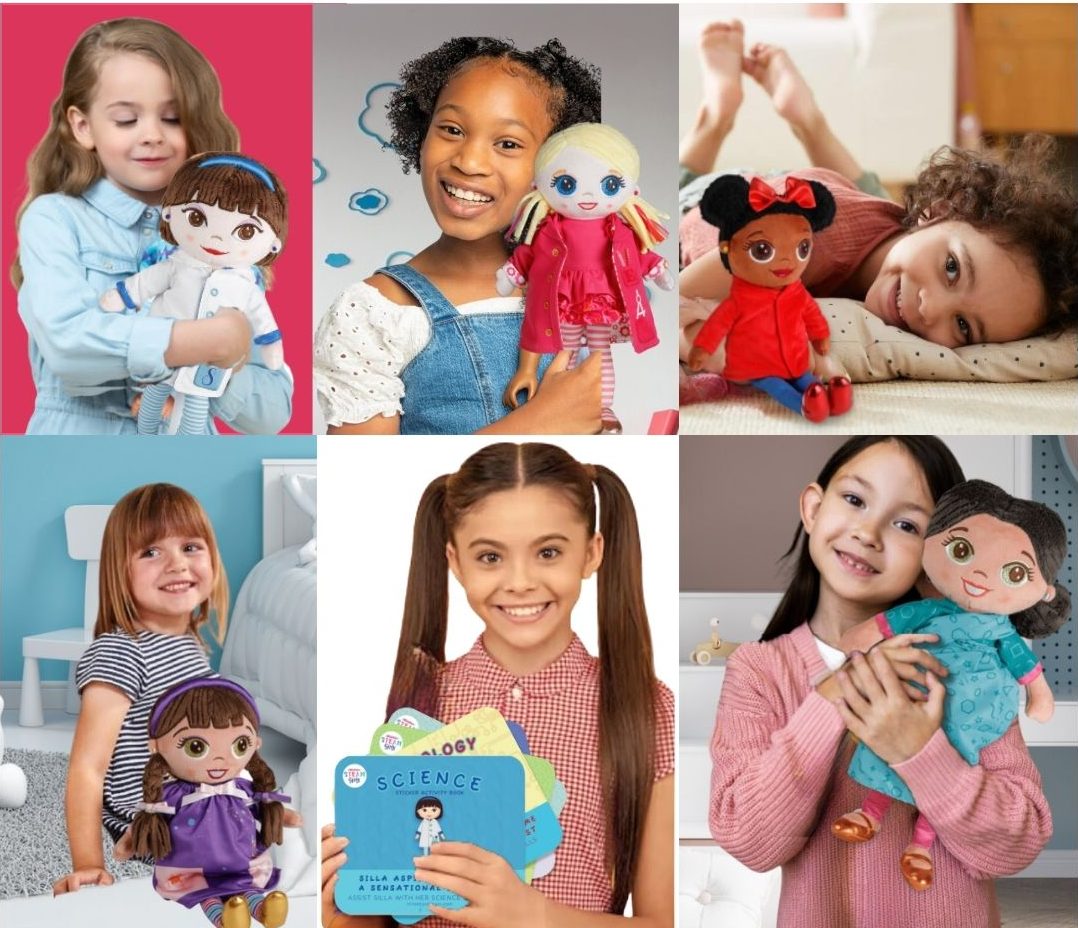From fostering a sense of caring to instilling independence and empathy, every parent wishes to witness their child blossom into the best version of themselves, caring, independent, and empathetic individuals. We adopt effective ways that aid our kids to learn helpful skills. Among these, one powerful method stands out is doll playing.
Beyond being a source of simple joy, doll play shapes a child’s development, fostering proficiency in fine motor skills, nurturing emotional well-being, and cultivating social and ethical understanding. Let us unravel the profound impact of doll play, exploring how this simple activity of joy can instill confidence in our children, making them confident to explore the world around them.
Importance of Playing with Dolls
Beyond the joy and imagination it sparks, doll play is a multifaceted activity that contributes to the development of a child, encompassing emotional, social, cognitive, and physical aspects of their growth. Playing with dolls encourages children to talk more about others’ thoughts and emotions in their way.
Through interactive doll play, children not only learn self-expression but also develop crucial social and communication skills. Moreover, a doll can also be an educational and cultural obsession of your ward or it can be the best childhood art companion for your child igniting the flames of curiosity in your child’s mind.
Positive Skills Children Cultivate Through Playful Doll Adventures
Child development dolls, like Theodora S.T.E.A.M Girls, help children cultivate beneficial skills that can lay the foundation for a better tomorrow. These dolls not only provide children with immense pleasure while playing, but also have far-reaching effects on the cognitive, educational, emotional, social, and physical development of your child.
Engaging in playful doll adventures offers numerous positive skills and developmental benefits for children. Here’s a breakdown of the skills they can cultivate through interactive doll play.
- Creativity
Creativity means the ability to generate new and valuable ideas, solutions, or expressions that are characterized by originality and adaptability. Doll play wide open the door of the creative world for children by fostering the creative imagination as children often construct imaginary worlds and settings for their dolls, expanding their creative thinking to build unique environments.
Doll play often sparks inventive ideas, whether it’s creating new outfits for the dolls, or designing new accessories. This creativity can be a precursor to problem-solving and innovation in other areas of their lives. Moreover, doll play encourages the exploration of Future change makers roles and occupations, broadening their understanding of the world around them.
- Empathy
Playing with dolls offers major benefits in preparing children for the future by nurturing social skills like empathy. Studies prove that doll play stimulates brain regions that allow children to develop empathy and other social processing skills. As children project feelings onto their dolls and, in doing so, they develop the ability to recognize and empathize with different emotional states.
As children engage in caring for their dolls, they foster a sense of responsibility and empathy by getting attuned to the needs of their doll companions.
- Self-Independence
Playing with dolls can be a great way for children to experience and practice everyday situations more independently. For example, an interactive doll might need changing, dressing, and washing. Kids learn to make decisions for their dolls, with a growing sense of self-confidence. Being in charge of self-built scenarios, children build a foundation for independence and self-reliance in various aspects of their lives.
- Language Development
Kids love engaging in conversation with dolls during play. They speak out their feelings and share their fears, happiness, and observations with dolls. This imaginative dialogue not only expands their vocabulary but also sharpens their skills in sentence formation.
Through these interactions, children naturally enhance their communication abilities and convey their ideas effectively and confidently.
- Imitating Real-Life and Social Scenarios
Doll play serves as a powerful tool kids use to imitate their real and social life experiences. By listening, paying attention, and sharing play experiences, children can explore their experiences and develop self-discipline. When they mimic everyday activities and relationships, they gain practical insights into problem-solving skills.
Through their imaginative experiences, children practice and understand various social roles and interactions. This enhances and develops crucial social abilities such as cooperation, negotiation, and teamwork.
- Fine motor skills
Fine motor skills involve small muscles working with the brain and nervous system to control movements in areas such as the hands, fingers, lips, tongue, and eyes. Doll play often involves dressing and undressing dolls, requiring precise hand-eye coordination and fine motor skills. These activities not only provide a fun and imaginative play experience but also play a crucial role in the physical development of children. Developing fine motor skills helps children do things like eating, writing, manipulating objects, and getting dressed.
Final Thoughts
The advantages of having fun with dolls go way beyond just having a good time. It’s a known fact that the skills we pick up in childhood can make a big difference in our future success, with empathy being just one example. From sparking creativity to developing empathy, playing with dolls is a great way for parents to help their kids learn important life lessons. It’s not just about entertaining; it’s about building confidence, independence, and a solid understanding of the world.





